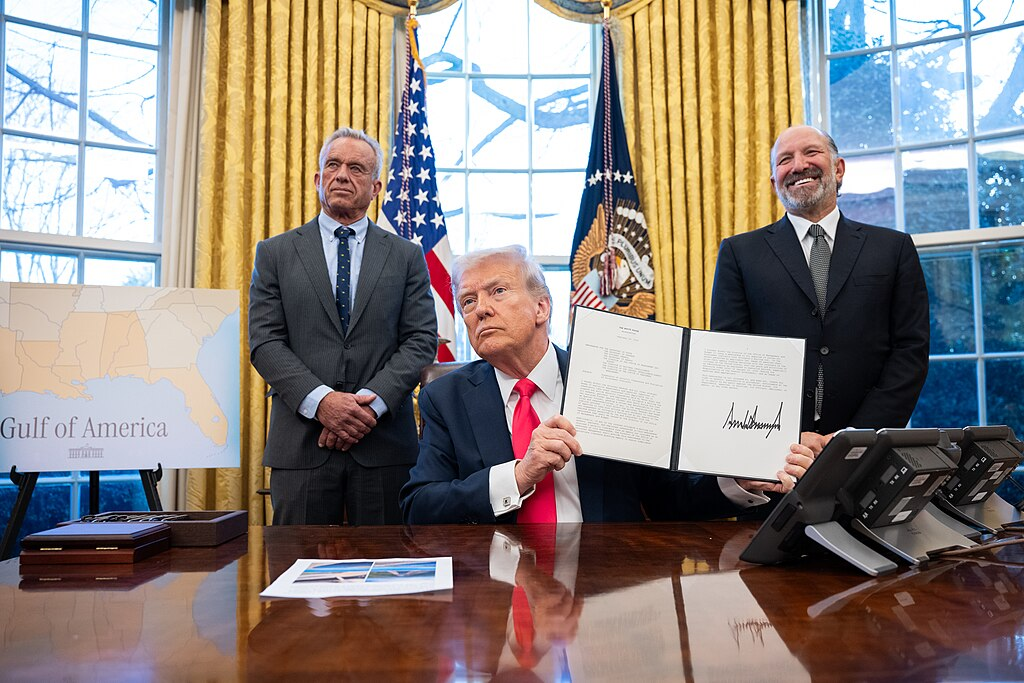

U.S. President Donald Trump signed an executive order on Friday to halt foreign aid to South Africa, citing the country’s controversial land reform policies and its stance on Israel’s actions in Gaza. The order accuses South Africa of human rights violations and a “shocking disregard for its citizens” due to a law that permits the government to seize farmland from ethnic minorities, particularly White farmers, without compensation.
The directive mandates U.S. agencies to cease all assistance to South Africa unless deemed essential. It also calls for support to Afrikaners, an ethnic group descended from European settlers, who are fleeing South Africa due to what the order describes as government-sponsored, race-based discrimination. The U.S. will assist these individuals through refugee resettlement programs.
“It is the policy of the United States that, as long as South Africa continues these unjust and immoral practices that harm our Nation, the United States shall not provide aid or assistance to South Africa,” the order states. “The United States shall promote the resettlement of Afrikaner refugees escaping government-sponsored race-based discrimination, including racially discriminatory property confiscation.”
Global Impact of U.S. Aid Freeze
This move follows a broader 90-day pause on all foreign development aid ordered by Trump in January, as part of an assessment of its alignment with his “America First” foreign policy. The suspension has disrupted global development programs, including shipments of medical supplies such as HIV drugs and the deployment of disaster response teams. Even waivers for “life-saving humanitarian assistance” have faced delays.
South Africa, home to the world’s largest population of people living with HIV, over 8 million, has been particularly affected. The country is a hub for HIV research, including efforts to develop a vaccine. However, key clinical trials and studies have already been halted due to the aid freeze.
The cuts are part of a wider cost-cutting initiative by the Trump administration to reduce government spending. Among the affected programs is the U.S. President’s Emergency Plan for AIDS Relief (Pepfar), launched in 2003 by then-President George W. Bush. Pepfar, which provides critical funding for HIV treatment and prevention, is distributed through the U.S. Agency for International Development (USAID), an agency that has faced significant restructuring under the current administration.
The decision has drawn criticism from global health advocates, who warn that the suspension of aid could have dire consequences for vulnerable populations in South Africa and beyond.